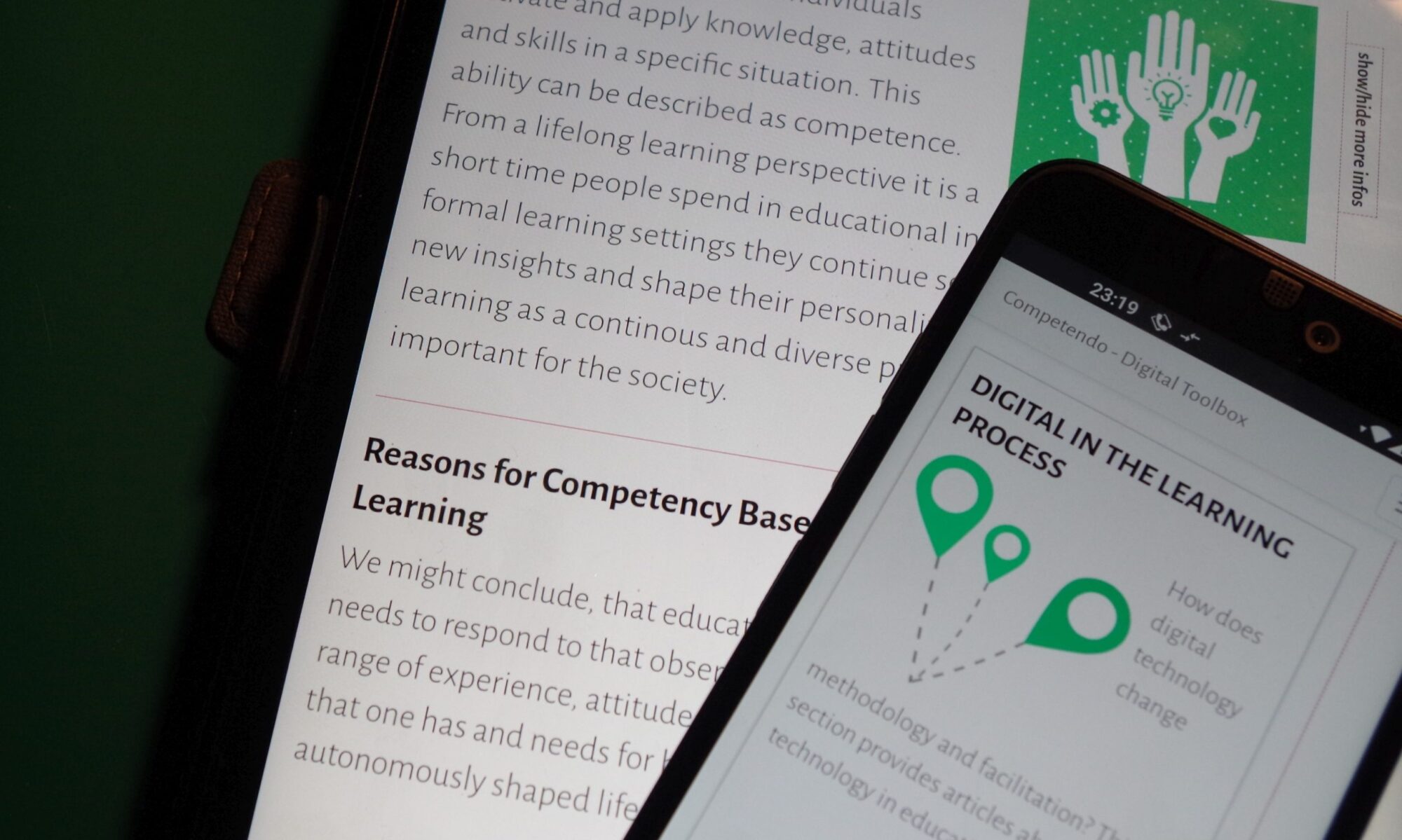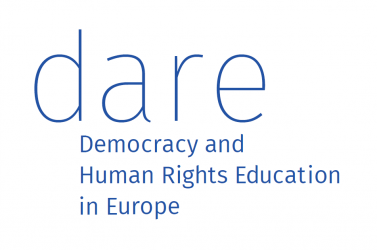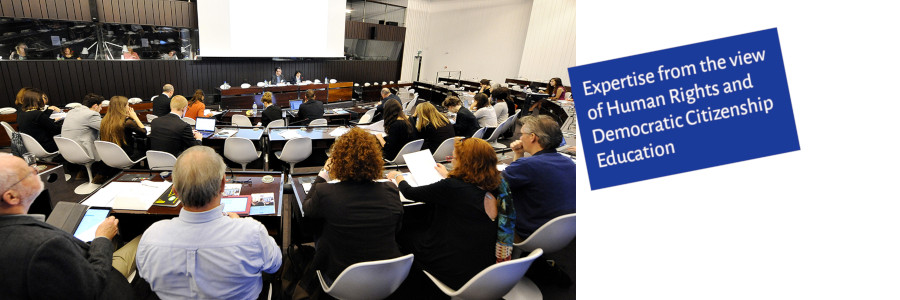- Aspects to be considered when thinking about modernisation of education in Europe
- DARE communication to the European Parliament’s rapporteur on the modernisation of education in the EU, MEP Łybacka
- 24.11.2017
- Download: PDF
Education and Democracy are two sides of one coin in our societies in Europe. Democracy is at several levels in Europe under heavy pressure. We can look at political developments in certain member states like HU and PL, look at attitudes toward minorities such as migrants or LGBT, or look at the level of agreement of citizens with the political system and political performance.
Deregulation, the rise of authoritarian and populist ideas, political decision making “without any alternatives”, new conflict lines and other aspects – should be a question of deep concern for us all.
An engaged and proactive attitude of citizens and a strengthened democratic civil society seem to be important factors helping to face these challenges. Therefore, Education for Democratic Citizenship seems to be more important than ever.
To modernise education means also to take thoroughly into consideration the effects of educational modernization on democratic development in our societies. Education needs to respond to a shrinking labour market and change of employment offers, to a loss of work through digitalisation, but also to the potential of digitalisation for people, social wellbeing and work.
Education is tackling both domains of key competencies – the ones citizens need as political subjects in Europe and those that equip them in their role as employees and employers.
- A renewed EAT strategy needs to find proper answers on both challenges and should strive for a balanced provision of offers which does not subordinate one field towards another.
Erasmus+ and its impact on the European civil society
E+ has resulted in an amazing number of activities and projects and especially with the KA 1 has contributed to the professionalization and development of the field of education and youth. On the one hand, the de- centralisation of the current program leads to a better connection of NA´s to national needs and in best case better integrates providers and expertise from the ground than formerly centralized projects have done.
On the other hand, the development of shrinking spaces for civil society in various European countries show a big risk to misinterpret and counteract the idea of European cooperation in EAT and in the field of youth, by streamlining the programme to national political priorities, which are clearly against European values of democracy solidarity, human rights. National actors intending to follow the European Values are then lacking the support that is originally dedicated to them.
- Thus any modernisation and re-thinking of education needs to take into account that a centralised management of certain pillars in any future education programme is probably the only guarantee to maintain with EU money democracy learning in all sectors of education.
- There is an urgent need for better monitoring on the programme regards technical standards but also regards the content of any future programme by the EC itself.
European innovation
The strategic importance of education for an European identity was highlighted in the communication of the commission from November 17, 2017 Strengthening European Identity through Education and Culture. It is clear that education needs to unlock its potential for innovation and education providers are constantly working on that.
The commission is describing the limitations for achieving more social impact: “Union’s competences are limited to encouraging cooperation, supporting and complementing national actions.”
There are already good experiences. The link between practice and the level of European policy making was established by the former LLP programme. In the decentralized management this approach is facing serious difficulties. The recent termination of the EAT stakeholder forum by the DG EAC in 2017 is an effect of a unnecessary self-closure of DG EAC and worsens the situation for European civil society organisations to communicate their expertise and the one form the grassroots level of their membership.
- A partial centralisation of some lines of a follower to Erasmus+ (and other possible programs) could be the adequate path to such complementary innovation. Especially where European cooperation develops new outcome, good practice is scaled or broadened or finds its way across national or sectoral boundaries.
- The need for systemic impact requires a responsibility of the programme itself to build capacities
- Actions such as strategic partnerships could therefore be bound closer to the European level. There should be the opportunity to apply and communicate directly at the EAC level and such projects need to become easier involved in the relevant dialogues on EU level, eg through a new centralised Key action for European organsiations.
The idea of the social impact of innovative educational practices is incomplete when citizens’ self-organising and outreach, their gaining social capital and the idea of social cohesion are not reflected sufficiently. It is the people and citizens who are strengthening “Europe’s resilience in a context of rapid and profound changes“, but they are playing only a marginal role in the mentioned commission’s communication. There has been plenty of analysis underlining the importance of benefits of coherent LLL strategies to employability in the EU. Unfortunately the EU seems to follow a too unidimensional focus on entrepreneurship and employability in education and ignoring the impact of social capital and citizenship for peaceful living together, prosperity and wellbeing in Europe.
DARE is advocating for seeing the common aspects of developing civic competencies in civil society and competencies for the labor market/entrepreneurship competencies and stimulating educational providers and policy to value the sense of initiative, the value of cooperation and proactivity in all spheres of education. They are connected through competency fields such as creativity, proactivity, systems thinking, collaboration or self-autonomy (the EntreComp framework is showing a lot of these commonalities).
Innovation thought in such holistic direction should not be slowed down through new structural borders (i. e. a separation or split between different DGs).
- Approaches that combine the empowerment of citizens for civic engagement and employability by referring to both dimensions explicitly and in a credible way should be supported more.
- DG EAC should keep the coordinating and leading role in the Erasmus+ structural setting, without subordinating certein strategies solely to the labour market.
Strieve for local outreach and co-direction
Innovation in social systems and bottom-up is often taking place in transition experiments, in cross-sectoral collaboration, in connecting different local practices and combining them. For achieving this, European projects targeting innovation should include a local outreach component.
- In order to better meet the urgent need to contribute with education to solidarity, respect, democracy and Human Rights, in Europe any European educational programme needs to inherently contain local outreach components that enable to follow up for projects and involve people from these levels, as participants, learners, educators and the supporting structures. Specific emphasis should be put on the involvement and co-direction of youth on any issues affecting their learning as well as of the development of adequate youth work structures.
Digitalisation
With regard to the topic of digitalisation we want to point out the significant importance to adequately support the development citizens’ competences. Digitalization in Europe and worldwide will have a tremendous impact on people, on economy and employment and political systems. For our future wellbeing we should ensure that education makes use of the technological developments in all spheres – strengthening the competencies for successful action all areas affected.
Education including a democracy perspective is most probably the only instrument to guarantee, that our societies will define the route of digitalisation and not vice versa become objects of the digital age. If democracy in Europe is of a vital interest then this is the point for the European levels to show the difference to authoritarian rule, where digitalisation is the tool to keep people under control.
- Education related to digitalization needs to include the civic competencies, to reflect social impact and help citizens to come into a proactive position towards the major changes they will face.
About the DARE network
Democracy and Human Rights Education in Europe (DARE network) is a European network of educational providers active in Education for Democratic Citizenship and Human Rights Education (EDC/HRE). DARE organises currently 38 NGO´s and institutions from 28 European countries. As CSO´s they engage for a democratic civil society in Europe, bridge the gap between formal and non-formal learning and bring in the expertise from the levels of EDC/HRE in youth and adult learning, VET and higher education. DARE members are active in educational practice, research, learning design, and are partners on various fields of policy development.
http://www.dare-network.eu
For the DARE network:
Nils-Eyk Zimmermann, vice president of the network
Georg Pirker, secretary of the network


